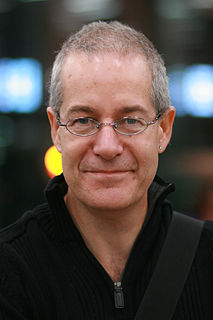A Quote by David Chalmers
Things are still in early stages, but one can imagine that as we build up and systematize our theories of these associations, and try to boil them down to their core, the result might point us toward the sort of fundamental principles I advocate.
Related Quotes
I think it's important to reason from first principles rather than by analogy. The normal way we conduct our lives is we reason by analogy. [With analogy] we are doing this because it's like something else that was done, or it is like what other people are doing. [With first principles] you boil things down to the most fundamental truths…and then reason up from there.
The mathematical is that evident aspect of things within which we are always already moving and according to which we experience them as things at all, and as such things. The mathematical is this fundamental position we take toward things by which we take up things as already given to us, and as they must and should be given. Therefore, the mathematical is the fundamental presupposition of the knowledge of things.
I'm working on a number of different things. I'm working on a couple of TV things and I'm working on a couple of film things too, and they're all very early stages. One of them I'm writing myself, one of them I'm writing with somebody else, and one of them I'm supervising a writer, and they're all sort of coming up at the same time and it'll be interesting to see which one kind of reveals itself first and jumps ahead.
Humor is so culturally based that when I try to tell a joke as me being a white American, if I tell other white Americans, they'll laugh. If I tell an African American, they might not laugh. In fact, they either might not find it funny, or they might find it offensive, and I didn't mean it to be offensive. So these are the sort of little things that build up over time, just like in a marriage. You know, the little things can build up over time.
"Fate permitting" is a standard Stoic phrase meant to remind ourselves that planning things is up to us, but the ultimate outcomes are not under our control. It helps us to develop an attitude of equanimity toward the universe. We should very much try to change things for the better, that's the whole point of the Stoic discipline of action.
All of us live at the feeling level, and our feelings are in large part a result of the way we perceive things. You observe or are told something, you interpret it, and only then do you have a reaction at the feeling level. The point is that feeling is preceded by perception, and all of us are capable of controlling our interpretation [the associations and assumptions] of what we see. If we can control our interpretation, then it logically follows that we can exercise some control over our feelings as well.
By delivering experience, novels can alter the stance we adopt toward news - not much, I'm sure, but they can make it a little more difficult for us to consign "other people" to our tidy boxes. Widening our imaginative life might - it's not hard to imagine - also develop our ability to contemplate counterfactuals and our capacity to speculate about how things might differ from how they're being represented.
I lost my mother early, I've sometimes felt I haven't had anyone to show me the way. When I look to the future there's only a blank. "I can't see past the point where I am," the speaker says at one point - "like you, I'm just passing through." If my mother were still alive I imagine I'd have a clearer sense of what a meaningful, vital life might look like 25 years down the line.
On the journey of the warrior-bodhisattva, the path goes down, not up, as if the mountain pointed toward the earth instead of the sky. Instead of transcending the suffering of all creatures, we move toward turbulence and doubt however we can. We explore the reality and unpredictability of insecurity and pain, and we try not to push it away. If it takes years, if it takes lifetimes, we let it be as it is. At our own pace, without speed or aggression, we move down and down and down. With us move millions of others, companions in awakening from fear.







































